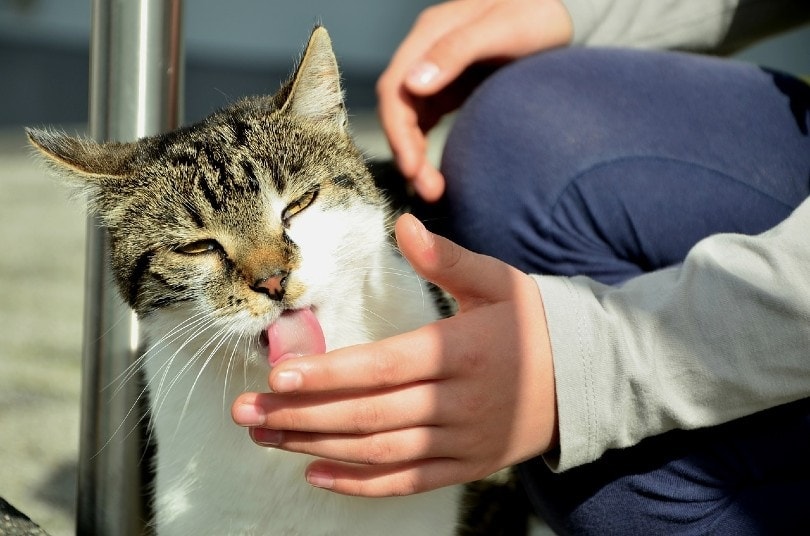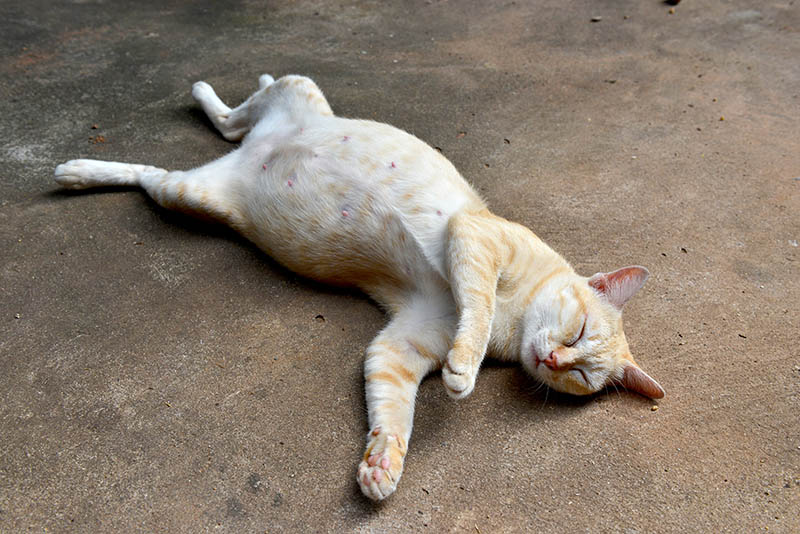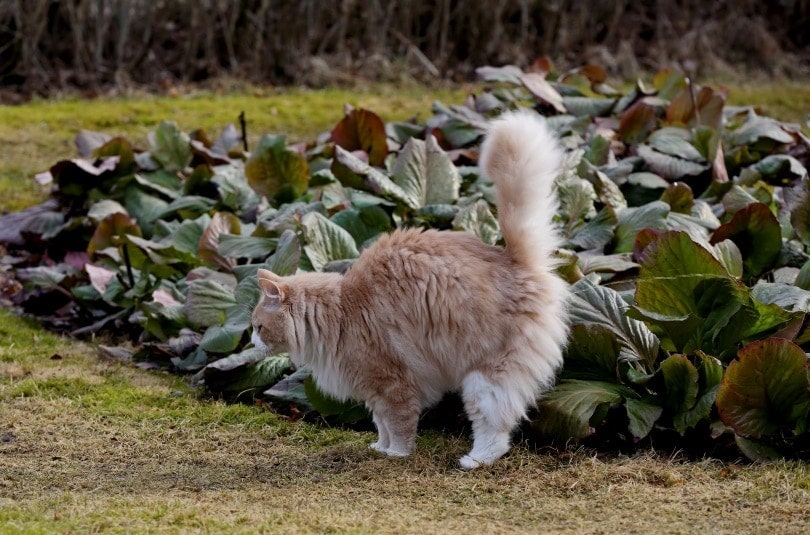Is Eucalyptus Poisonous to Cats? Vet-Reviewed Facts to Keep Your Cats Safe
By Hallie Roddy
Updated on
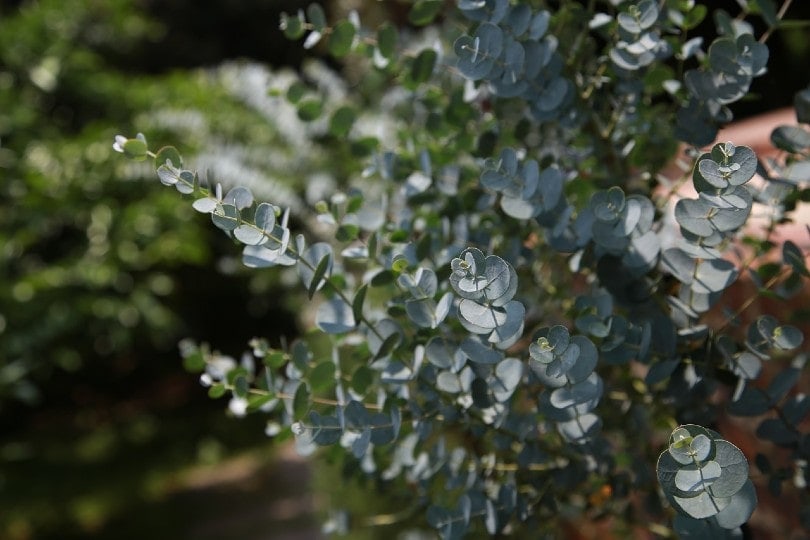
More and more people are spending time inside their homes these days, many of whom rely on plant decorations, scented candles, and oils to liven up the space. Eucalyptus is believed to have many benefits for humans, like reducing stress and helping with respiratory problems, but it is dangerous for your pet cats. According to the ASPCA, eucalyptus is toxic to cats, dogs, and horses.
Humans sometimes find it difficult to believe that something as natural as a plant could be dangerous for our pets. But believe it or not, you’re better off keeping eucalyptus in all its forms out of your house altogether.
Is Eucalyptus Poisonous for Cats?
Even though you might enjoy the smell, eucalyptus is not safe for your feline companions, whether it is fresh, dried, or turned into oil. Even inhaling the scent of this plant could cause respiratory issues in your cat. Cats are unable to metabolize the compounds found within the essential oils of this plant, so they are toxic for them.
Fresh and Dried Eucalyptus
Fresh and dried eucalyptus leaves are both unsafe for cats. These leaves often come sold in small sachets or pots and are commonly used to make a room in the house smell nice and mask other unwanted odors inside. While essential oils are more dangerous than dried and fresh forms, even chewing a few fresh leaves can cause gastrointestinal distress to your cat.
Essential Oils
Using eucalyptus essential oils has become increasingly popular as people search for natural, chemical-free ways to control the aroma of their homes. Unfortunately, these oils can also pose a high risk to cats.
Normally, essential oils are very concentrated, so they can cause great damage to your pet’s internal organs even when inhaled, in direct contact with, or ingested in small amounts.
Essential oils are rapidly absorbed orally and through the skin. The higher the essential oil concentration, the bigger the risk to your cat.
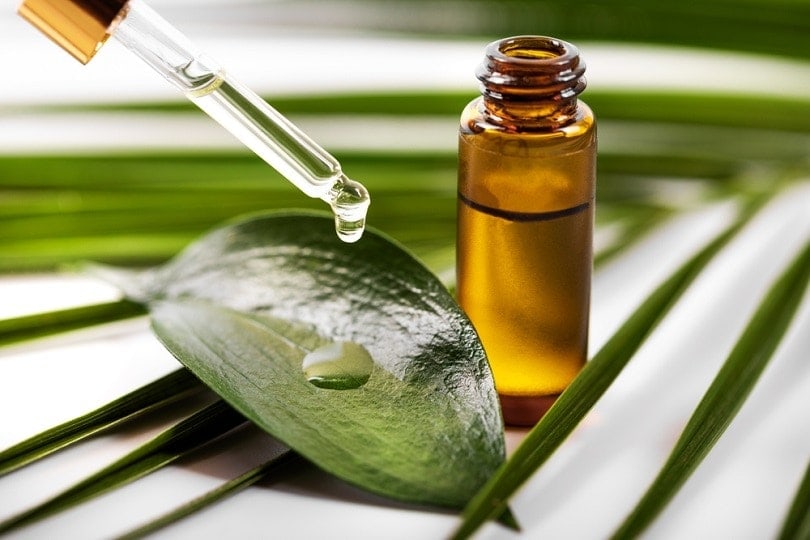
What About Essential Oil Diffusers?
Essential oil diffusers are devices that diffuse scents into the air. When you add the droplets into the machine, the oil gets dispersed into the atmosphere and can make a home smell pleasant all day. Because you’re not putting the oil directly near your cat, people assume that they are safe—unfortunately, they’re not.
While some essential oils are safer for cats than others, they are just not worth the risk. Even small amounts of these concentrates could be dangerous. If you have a pet in the home, it’s best to avoid essential oils and diffusers altogether. Essential oils from a diffuser could cause burning sensations in their nose and eyes, as well as breathing problems. Over time, the exposure could be potentially fatal.
Signs of Eucalyptus Poisoning in Cats
You should know by now that eucalyptus products of any kind should be kept far away from your cats. Still, you never know when these curious animals will get into something that they shouldn’t. The most common signs of eucalyptus poisoning in cats include:
- Diarrhea
- Vomiting
- Weakness
- Drooling
- Unsteady gait
- Tremors
- Seizures
Treating eucalyptus poisoning in cats requires immediate attention from a veterinarian. If any oil gets on their skin, make sure to wash it off immediately to avoid irritation. For this, use a mild soap and plenty of water. You should also put on an E-collar to avoid the cat licking the area if it feels irritated. Vets do not encourage vomiting due to the volatility of the oils and the pulmonary risks. Vets will often treat the signs by giving them stomach protectants and an intravenous drip to flush their system as well. Try to bring the packaging of the oil with you when you go to the vet because it can help with proper diagnosis and treatment.
Final Thoughts
As a pet owner, you must be extremely careful about what you expose your pets to. Cats are sensitive creatures and cannot touch and ingest a lot of the things that we can. Just because something is natural does not mean it can’t be dangerous for your pets. If you’re dying to make your home smell pleasant, then look for plants that are safe for cats or bake something sweet in the oven. There are plenty of ways to make your house smell nice without putting your pets in danger.
Related:
- Are Morning Glories Poisonous to Cats? Keeping Your Cats Safe
- Are Gardenias Poisonous To Cats? Keeping Your Cats Safe
Featured Image Credit: pieonane, Pixabay


